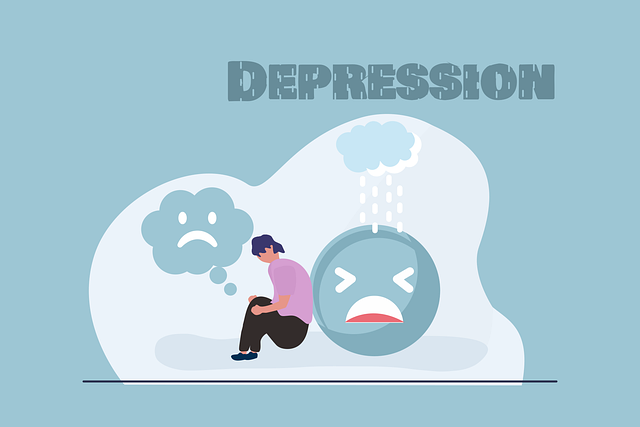Longmont Play Therapy is a comprehensive approach to mood regulation, utilizing games, art, and imaginative play to help individuals, especially children and adolescents, express and manage their emotions. This safe, compassion-cultivating environment enhances coping skills, self-awareness, and social interactions. By keeping mood journals, recognizing triggers, and practicing mindfulness and relaxation techniques, participants learn to proactively navigate challenging situations. Cognitive reframing empowers them to challenge negative thoughts and embrace positive perspectives, reducing emotional distress. Longmont Play Therapy's emphasis on resilience building through creative activities fosters emotional intelligence, making it a powerful long-term strategy for effective mood management.
In today’s fast-paced world, effective mood regulation strategies are essential for maintaining mental well-being. This article explores powerful techniques through the lens of Longmont play therapy, a innovative approach that leverages play to address emotional challenges. We delve into understanding mood dynamics, identifying triggers, and employing mindfulness, cognitive reframing, and resilience-building strategies. By integrating these practices, individuals can effectively manage their moods and cultivate lasting mental resilience in their daily lives. Discover how Longmont play therapy offers transformative solutions for optimal emotional health.
- Understanding Mood Regulation: The Role of Play Therapy in Longmont
- Identifying Triggers: Recognizing Patterns for Effective Coping
- Mindfulness and Relaxation Techniques: Calming the Storm within
- Cognitive Reframing: Challenging Negative Thoughts with Playful Perspective
- Building Resilience: Long-Term Strategies for Mood Management Through Play Therapy
Understanding Mood Regulation: The Role of Play Therapy in Longmont

In Longmont, play therapy emerges as a powerful tool for mood regulation, especially among children and adolescents. Understanding that play is a child’s natural language, this therapeutic approach utilizes games, art, and imaginative activities to help individuals express and manage their emotions. By engaging in play therapy, participants can develop essential coping skills, enhance self-awareness, and foster healthy social interactions—all of which contribute to improved mental health awareness.
Longmont Play Therapy offers a safe space for compassion cultivation practices to flourish. Through carefully structured activities, therapists guide clients towards better understanding their feelings, reducing anxiety, and preventing emotional crises. This form of therapy is particularly valuable during times of crisis intervention guidance, providing immediate support and strategies to navigate challenging situations effectively.
Identifying Triggers: Recognizing Patterns for Effective Coping

Recognizing patterns is a crucial step in identifying triggers that affect one’s mood and emotional well-being. Through longmont play therapy, individuals can learn to identify recurring situations or behaviors that prompt intense emotions. By keeping a mood journal to track feelings and events, people often uncover specific scenarios or interactions that consistently disrupt their mental balance. This awareness is powerful; it enables one to anticipate potential triggers and implement coping strategies proactively.
For those with a history of trauma, understanding these patterns becomes even more critical. The Risk Assessment for Mental Health Professionals and subsequent Risk Management Planning are essential tools to ensure safe and effective support services. By recognizing early warning signs of distress or potential relapse, mental health professionals can help clients navigate challenging situations and develop healthier coping mechanisms. This proactive approach is vital in managing mood disorders and preventing adverse outcomes, ultimately fostering a more balanced and resilient state of being.
Mindfulness and Relaxation Techniques: Calming the Storm within

In the realm of mood regulation strategies, mindfulness and relaxation techniques emerge as powerful tools for calming the storm within. Longmont Play Therapy, a specialized approach, incorporates these practices to help individuals, especially children, manage and express their emotions in healthy ways. By fostering self-awareness and present-moment focus, mindfulness enables folks to observe their thoughts and feelings without judgment, breaking free from reactive patterns. This, in turn, enhances emotional intelligence and promotes mental well-being.
Relaxation techniques, often integrated into mental health education programs designed with cultural competency training in mind, offer additional avenues for stress reduction. These practices range from deep breathing exercises to progressive muscle relaxation and guided imagery. Engaging in such activities can significantly lower anxiety levels, improve focus, and boost self-esteem—all crucial aspects of holistic healthcare. Through regular practice, individuals gain tools to navigate life’s challenges with greater resilience and emotional balance, ultimately enhancing their overall quality of life.
Cognitive Reframing: Challenging Negative Thoughts with Playful Perspective

Cognitive Reframing is a powerful tool within Longmont Play Therapy that encourages individuals to challenge their negative thought patterns and replace them with more playful, positive perspectives. By identifying distorted or unhelpful beliefs, one can learn to reframe situations in a way that reduces emotional distress. This strategy involves questioning the validity of negative thoughts and replacing them with alternative, realistic interpretations. For instance, instead of thinking “I always fail at everything,” someone could reframe it as “I’ve had some setbacks, but I’m learning and growing from each experience.”
This technique is especially beneficial in crisis intervention scenarios where managing intense emotions is crucial. The ability to shift one’s perspective can help individuals navigate challenging situations more effectively. It’s a skill that aligns well with risk management planning for mental health professionals, as it enables them to guide clients towards healthier thought patterns during stressful events. Moreover, cognitive reframing can be integrated into the production of mental wellness podcast series, offering listeners practical strategies to cope with everyday stressors and fostering overall mental resilience.
Building Resilience: Long-Term Strategies for Mood Management Through Play Therapy

Building resilience through play therapy offers a powerful long-term strategy for mood management. This therapeutic approach, often practiced by professionals in Longmont Play Therapy centers, utilizes creative and imaginative activities to help individuals, especially children, process emotions, navigate stress, and develop coping mechanisms. By engaging in play, participants can express themselves freely, explore their feelings, and learn healthy ways to manage moods, making it an effective tool for enhancing mental wellness.
Play therapy sessions provide a safe space for self-discovery, fostering emotional intelligence and resilience. Through guided exercises and playful guidance, individuals gain insights into their behaviors and emotions, promoting better understanding of themselves and others. Incorporating Mental Wellness Journaling Exercise Guidance can further enhance this process, allowing clients to reflect on their experiences and track progress. Additionally, the principles of Mind Over Matter can be applied, teaching participants to consciously shift their perspectives and attitudes towards more positive states, thereby regulating moods effectively. Cultural sensitivity in mental healthcare practice is also integral, ensuring that play therapy methods are adaptable and respectful of diverse backgrounds, making it accessible to all.
In conclusion, this exploration of mood regulation strategies through Longmont play therapy highlights the power of these techniques in managing emotional well-being. By understanding triggers, adopting mindfulness, challenging negative thoughts with cognitive reframing, and building resilience, individuals can effectively navigate their moods. Longmont play therapy offers a holistic approach to coping, fostering personal growth and enhanced mental flexibility for a brighter, more balanced future.














